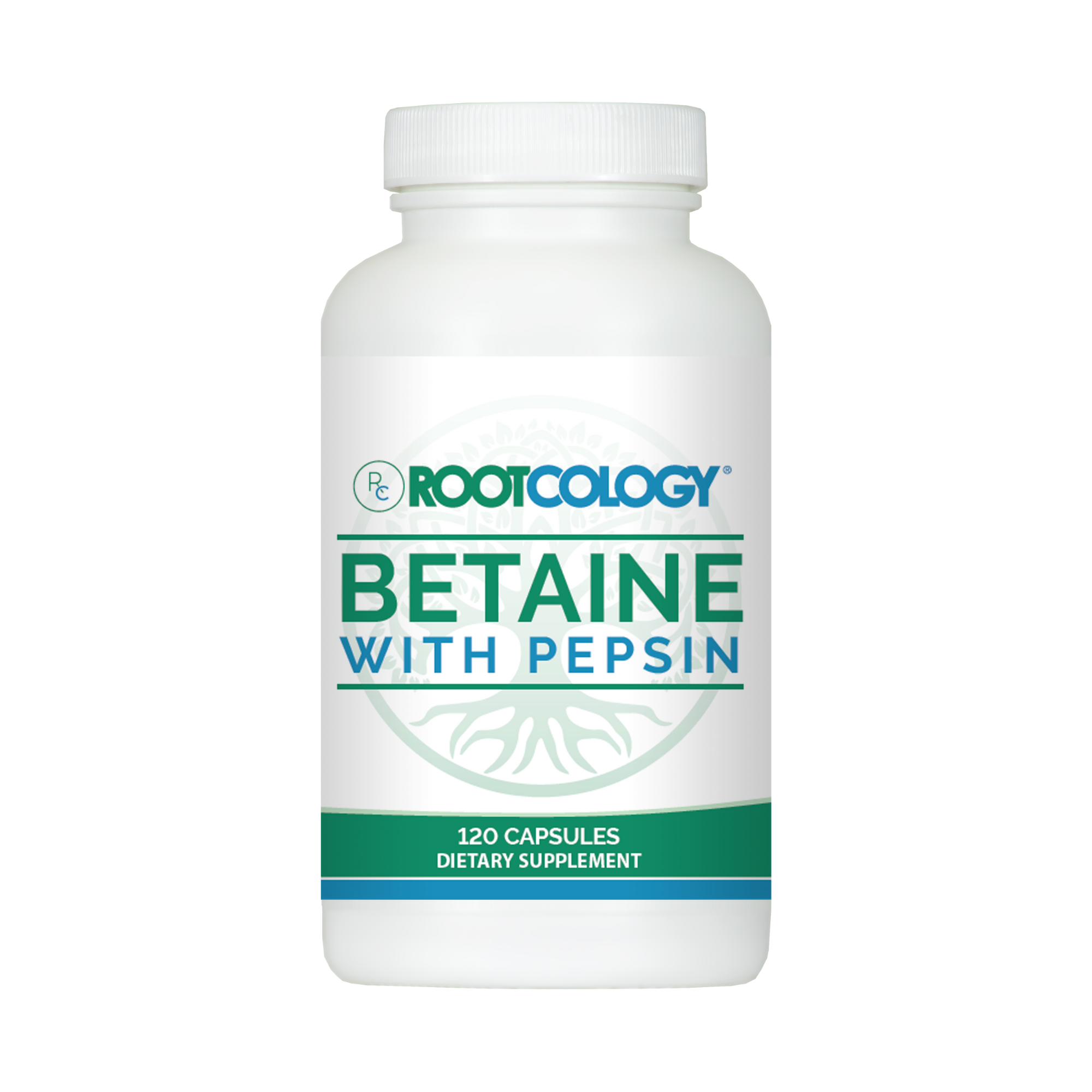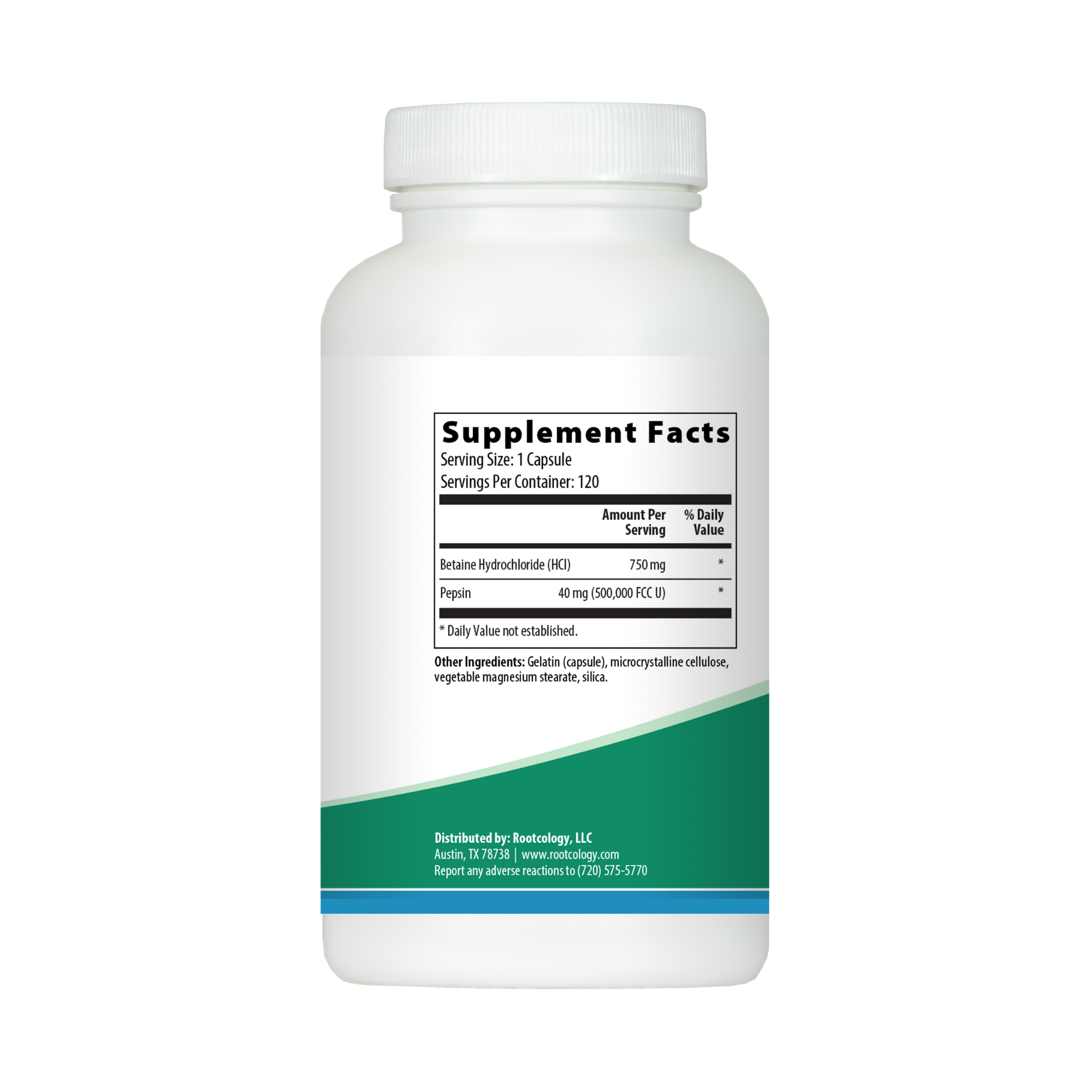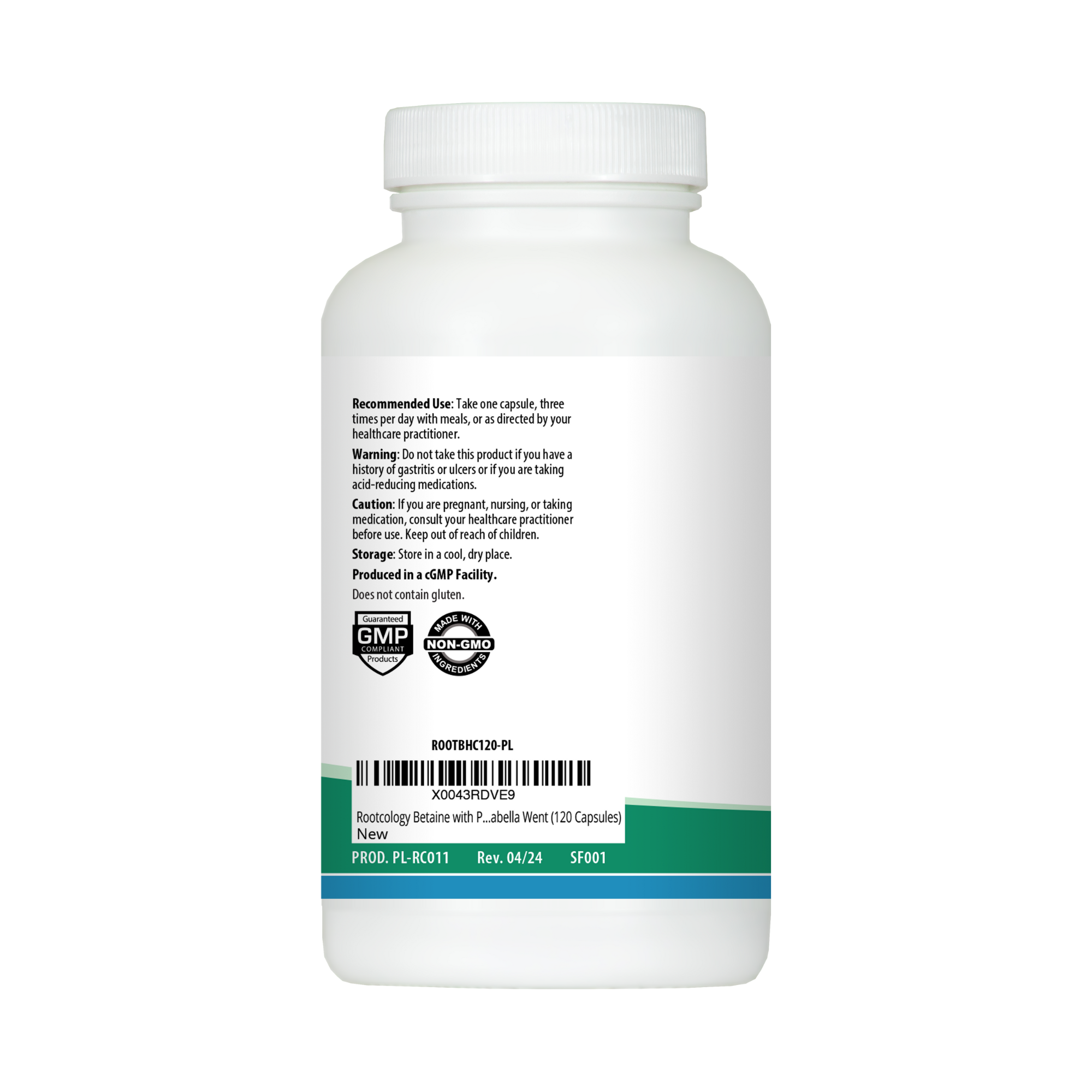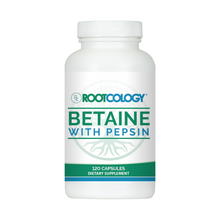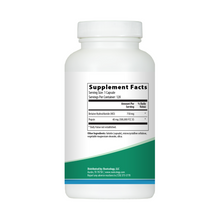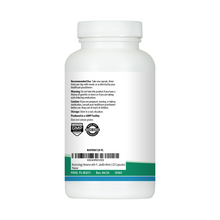What is Betaine with Pepsin?
Betaine with Pepsin contains betaine hydrochloride (also known as stomach acid) and pepsin, a digestive enzyme essential for proper protein breakdown. Taken with meals, this formula supports healthy digestive function, aids in the breakdown of protein-containing foods, and supports nutrient absorption.*
What are the benefits of Betaine with Pepsin?
Betaine with Pepsin may be helpful for supporting digestive health, maintaining proper digestion of proteins, supporting optimal absorption of nutritional substances, as well as occasional diarrhea and constipation.*
What is the recommended dose?
The recommended dose is 1-5 capsules with each protein containing meal (based on need), or as directed by your healthcare practitioner.
What if the recommended dose is not helping to support my digestion?
Betaine with Pepsin should be taken with a protein-rich meal, starting with one capsule per meal. The amount of Betaine with Pepsin that should be taken may vary for each person, to achieve the desired support. Please consult with your healthcare practitioner to determine the ideal dose for your needs.
When should I take it?
Betaine with Pepsin should be taken with protein-containing meals.
Can it be taken with thyroid medications?
Betaine with Pepsin should be taken at least 30 to 60 minutes away from thyroid medications.
How do I know if I have low stomach acid?
There aren’t too many tell-tale signs of low stomach acid, other than perhaps feeling full and tired after meals, as well as experiencing acid reflux-like symptoms. Nonetheless, low stomach acid is very common in Hashimoto’s. Signs and symptoms that could lead one to believe that a person with Hashimoto’s has low stomach acid include: occasional digestive discomfort such as acid reflux (this condition, that is conventionally treated with an acid suppressant, can actually be caused by low stomach acid), constipation and/or diarrhea, as well as low B12, ferritin, or iron levels, and fatigue despite optimal thyroid hormones.
Is Betaine with Pepsin a lifelong supplement?
Many people are able to wean off of Betaine with Pepsin within six to nine months. However, supplementation may still be helpful periodically for digestive symptoms, or when consuming higher than normal amounts of protein. Those with MTHFR gene polymorphisms may benefit from using betaine long-term. Please consult with your practitioner to determine the appropriate duration and/or discontinuation for your individual needs.
I feel a burning sensation when I take the Betaine with Pepsin. How can I get rid of this?
Mixing one teaspoon of baking soda in a glass of water can help neutralize the Betaine with Pepsin to reduce the burning sensation. This burning sensation is an indication that you likely need a lower dose of Betaine with Pepsin, or that you don’t need to take it any longer.
Not to be used by those with a corn allergy, a history of having any type of ulcer or gastritis, those with an active H. pylori infection, or those with an overproduction of stomach acid. Do not use if you are allergic or sensitive to pork or any of the ingredients in this supplement.
Consult with a doctor before use if pregnant or breastfeeding.
DO NOT TAKE if taking the following medications: blood thinners, NSAIDs, steroids, or other medications that may cause an ulcer.
Do not take with proton pump inhibitors and acid-suppressing medications, as these will negate the effect of this supplement.
Please note: Betaine with Pepsin uses a non-GMO corn-derived ingredient and may contain a protein component that could cause an allergic response in those with corn allergies.
- Kohli DR, Lee JZ-E, Koch TR, Talavera F, Anand BS, Greenwald D, et al. Achlorhydria Clinical Presentation. Medscape. https://emedicine.medscape.com/article/170066-clinical#b5. Updated July 15, 2016. Accessed May 3, 2018.
- Daher R, Yazbeck T, Jaoude JB, Abboud B. Consequences of dysthyroidism on the digestive tract and viscera. World Journal of Gastroenterology. 2009;15(23):2834-2838. doi:10.3748/wjg.15.2834
- Osborne D, Sobczynska-Malefora A. Autoimmune mechanisms in pernicious anemia & thyroid disease. Autoimmun Rev. 2015;14(9):763-768.
- Rojas Hernandez CM, Oo TH. Advances in mechanisms, diagnosis, and treatment of pernicious anemia. Discov Med. 2015;19(104):159-168.
- Gerenova, Manolova M, Tzoneva VI. Clinical significance of autoantibodies to parietal cells in patients with autoimmune thyroid diseases. Folia medica (Plovdiv). 2013 Apr-Jun;55(2):26-32.
- Lauritano AC, Bilotta AL, Gabrielli M, Scarpellini E, Lupascu A, Laginestra A, et al. Association between hypothyroidism and small intestinal bacterial overgrowth. J Clin Endocrinol Metab. 2007;92(11):4180-4184.
- Betesh AL, Santa Ana CA, Cole JA, Fordtran JS. Is achlorhydria a cause of iron deficiency anemia? Am J Clin Nutr. 2015;102(1):9-19.
- Jensen RT. Consequences of long-term proton pump blockade: insights from studies of patients with gastrinomas. Basic Clin Pharmacol Toxicol. 2006;98(1):4-19.
- Aghili R, Jafarzadeh F, Bhorbani R, Khamseh ME, Salami MA, Malek M. The association of Helicobacter pylori infection with Hashimoto’s thyroiditis. Acta Med Iran. 2013;51(5):293-296.
- Research and Science. Klaire Labs. https://klaire.com/researchandscience/. Accessed 11 August 2020.
You May Also Like
Questions about Rootcology Products? Email info@rootcology.com and we will get back to you within 24 business hours.




